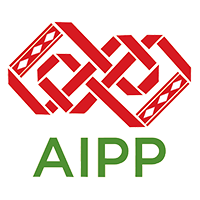Alarming trends and cases
Data from 19 communities in 9 different countries (Bangladesh, India, Nepal, Cambodia, Thailand, Philippines, Cameroon, Suriname, and Morocco) show alarming trends regarding land and resource rights.
All communities report having experienced conflicts over their traditional lands and territories – and a bit more than half of these communities have lost land to settlements, land grabbing, resource extraction or other forms of land use without prior consultation. In these cases the communities’ right to free, prior and informed consent (FPIC) has been violated.
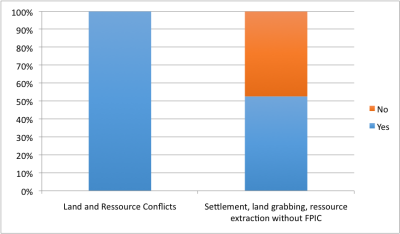
Data on implementation of the right to free, prior and informed consent (FPIC) in a broader sense, shows that local governments are more likely than central governments to implement FPIC procedures before they approve projects or other measures that affect communities:
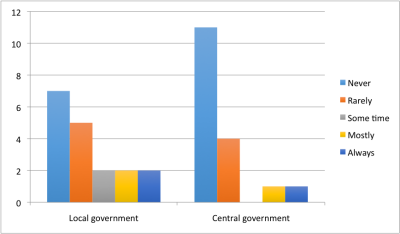
Data on the vitality of indigenous languages in the 19 pilot communities are no less alarming:
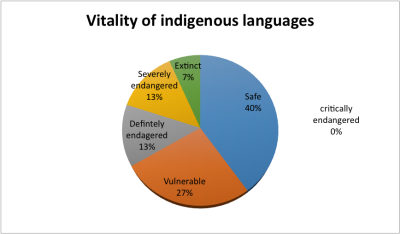
Less than half of the 19 communities report that their languages are ‘safe’ according to UNESCO’s criteria for assessing the vitality of languages, the rest report that their languages are vulnerable, endangered or even extinct (7%).
Interestingly, micro data from some communities show that the vitality of indigenous languages is not necessarily directly dependent on the level of recognition in national legal frameworks and administrative practices.
The example below shows a 0 score on recognition of indigenous languages in laws and policies in both India and the Philippines (blue and grey is absent in the chart because the scores recorded in the data sets were 0) – but a high score on the community’s self-assessment of the vitality of their language in the case of the Kankanaey community in the Philippines – and a less positive, but still not desperate score, in the case of the Borok community in India:
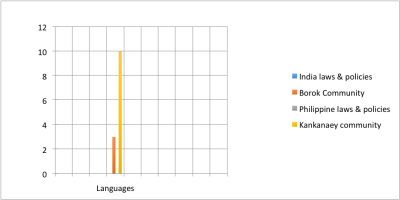
These micro data provide a glimpse into the resilience of indigenous cultures, that the Indigenous Navigator tools can also help uncover.
A people most left behind - the case of Baka communities in Cameroon
The trends presented below are based on a survey of 10 Baka communities with 1,028 individuals
Governance
ANY REPRESENTATION IN DECISION-MAKING BODIES:
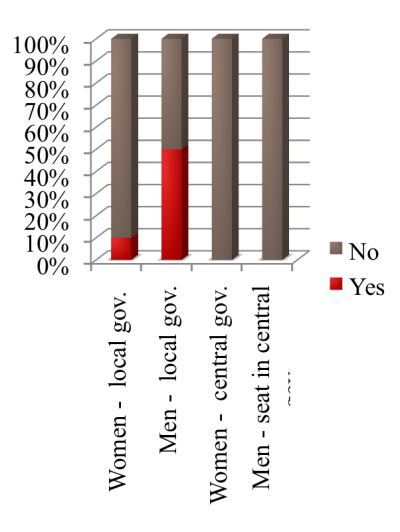
SELF-DETERMINED DEVELOPMENT PLANS
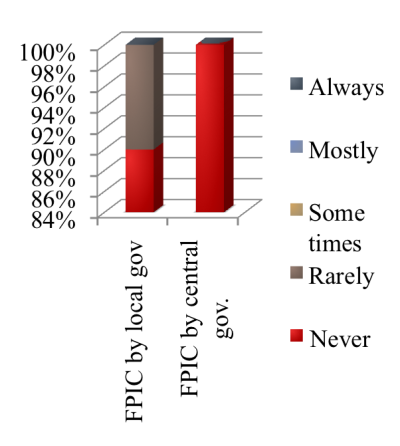
0% OF THE COMMUNITIES MAKE THEIR OWN PLANS FOR DEVELOPMENT
Community experiences:
- We only see people enter, and we only obtain informal information from the mouth of the Bantu chief.
- FPIC is not at all applicable. The community is not asked to identify needs and project priorities. It is as if the projects were imposed on the community.
- Local governments uses French. Do not seek FPIC.
- Not informed about projects
- They do not respect clauses with indigenous communities
Land and resource rights
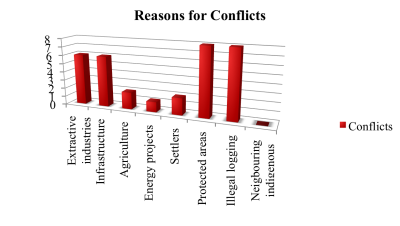
9 OUT OF 10 COMMUNITIES EXPERIENCE CONFLICTS RELATED TO LAND AND RESOURCES
- Two members accused of killing elephants by the Nature Guards (Ecogardes) without evidence , in the context of the installation of protected areas
- Several Baka encampments threatened by land grabbing
- Conservation officers beat up the young Djambe and his big brother Bouka, accusing them of killing an elephant. But they were not guilty.
- Several Baka beaten with a stick by nature guards (Ecogardes) without valid reasons; Encampments burnt by Bantu - as settlement of debt or because of a theft by a Baka
70% OF THE COMMUNITIES HAVE EXPERIENCED SETTLEMENT, LAND GRABBING OR RESOURCE EXTRACTION WITHOUT FPIC
Access to justice
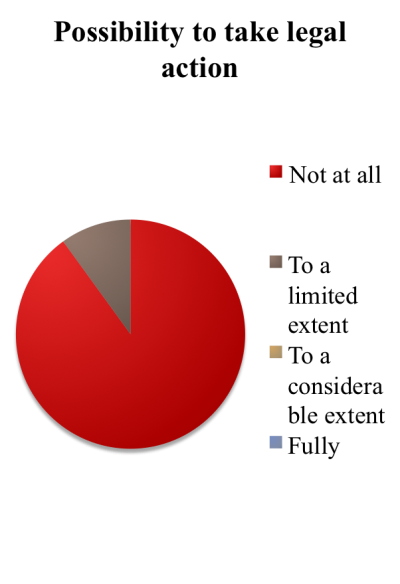
- We have never tried it in because of lack of recognition of our rights, lack of financial resources, distance from legal assistance and language barriers
- No external defense support, no way to file a complaint (no ID card, not knowing how to write in French)
- Lack of knowledge of rights in the national context, linguistic barrier, lack of financial resources, limited access to legal assistance, pit in relation to judicial institutions
- We have never brought it in because of lack of recognition of our rights, lack of financial resources, distance from legal assistance and language barriers
- No external defense support, no way to file a complaint (no ID card, not knowing how to write in French)
- Lack of knowledge of rights in the national context, linguistic barrier, lack of financial resources, limited access to legal assistance, pit in relation to judicial institutions
Education
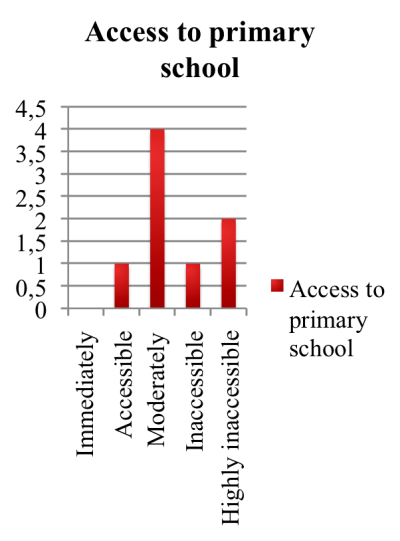
- Walking distance of 10km (round trip). It does not encourage children to go through this great forest.
- Baka uncomfortable in mixed schools; need for methods appropriate to their context
- 3km but problems with Kaka villages - children strikes
Only 40 youth can read some Baka language
Poverty
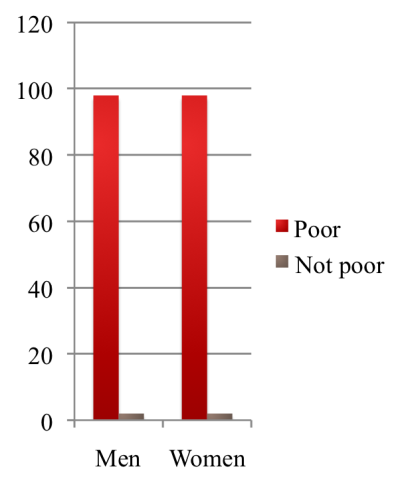
KEY INDICATORS OF POVERTY FROM THE PERSPECTIVE OF THE INDIGENOUS COMMUNITIES SURVEYED:
- Limited access to land
- Hunger and malnutrition
- Illiteracy
- Poor health
- No access to safe drinking water
- Poor housing.
ACCORDING TO THESE INDICATORS, 98% OF ALL BAKA ARE POOR.
Contact
